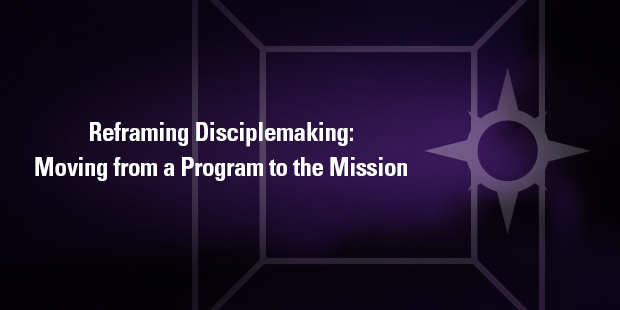
Reframing Disciplemaking: Moving from a Program to the Mission
I want to respond to a frequent question, “What is a good disciple-making mission”? While I appreciate and even understand the question, a better question is “What is our disciple-making mission”? The best disciple-making mission is always going to be your unique disciple-making mission.
Every church is unique! At the same time, it is true that our bias is that the big “C” Church has one and only one mission, and it is always a disciple-making mission. A good mission is our always our great permission with the Great Commission. Here at Auxano, we believe that “God is up to something cosmically significant and locally specific” in our church. I will say when taken out of your unique context most mission statements come up lacking.
In developing a mission statement, we begin by taking a deep dive into process work around a specific church’s identity. We want to look at the unique people, unique place, and the unique passion of the church and specifically where all three of these intersect. It’s after we do this in-depth process dive into your identity that you are prepared to begin discovering that unique mission and its articulation.
The challenge so often is we fail to have the capacity for this kind of deep processing work. There are many reasons for this, but three common “thinkholes” that keep us from it includes what we call the ministry treadmill (too busy), competency trap (to smart), and the denominational rut (too stuck).
Also, any articulation of mission or vision language should always pass the “5 C’s Test”. You can use this test to go ahead and evaluate your current mission. The Five C’s are: is it clear, compelling, concise, contextual, and catalytic.
Take a moment and evaluate your mission statement on a scale of 1-5 using the C’s. How did you do? It’s vital that you did well. Your mission is what we call the answer to question zero. Question zero is “What are we doing?” If you get this question, wrong everything is going to be wrong.
I’ve got so much I want you to know, but limited time and space to communicate it. However, there is one final thing I will add; a mission is always going to be spread by people, not paper. Therefore it is critical that you build a team and go on a profound collaborative journey that at the end of the day taps into the collaborative genius of your leaders.













